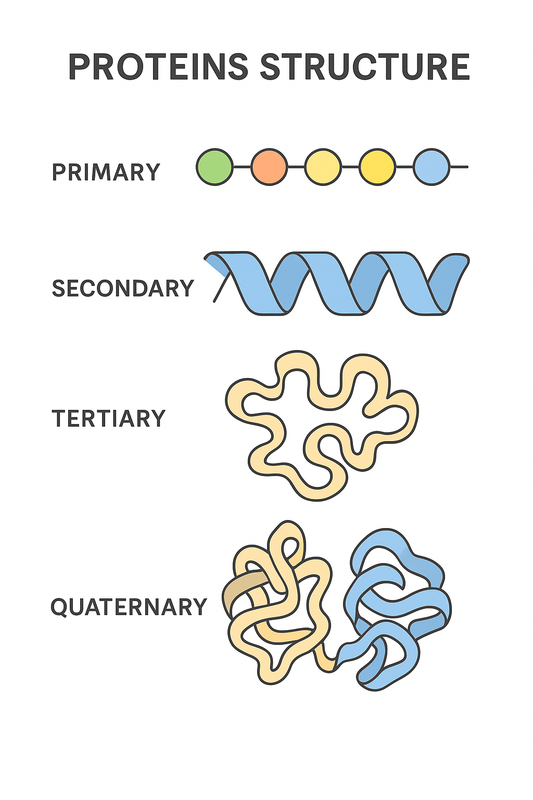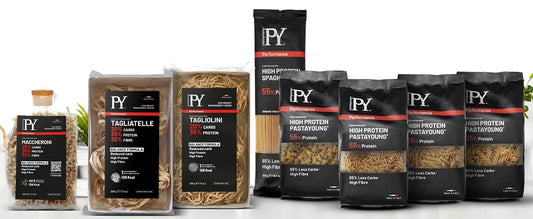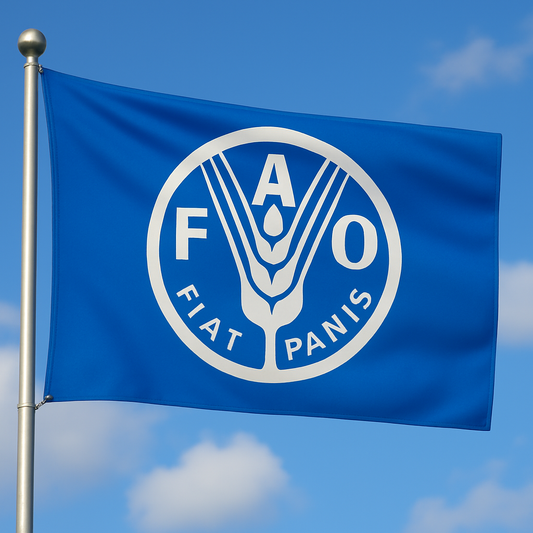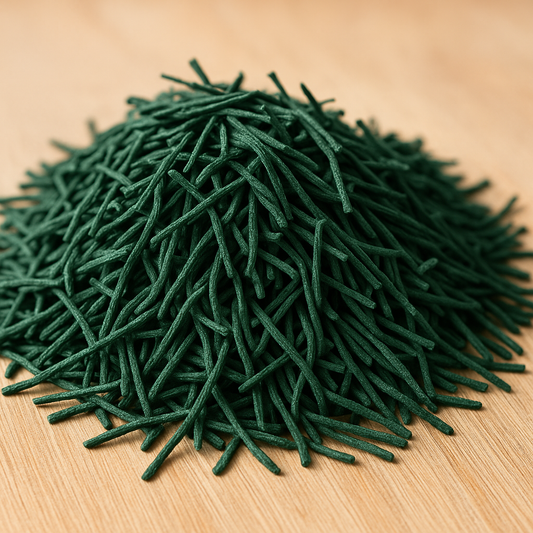
Do insects have Vitamin B12?
Share
In the world of nutrition, Vitamin B12 plays a crucial role in maintaining overall health and well-being. However, when it comes to unconventional sources of this essential vitamin, one question that often arises is: do insects have B12?
In this blog post, we will delve into the fascinating world of insect nutrition to explore the presence of Vitamin B12 in these tiny creatures. Join us on this journey as we uncover the mysteries surrounding Vitamin B12 in insects and its potential impact on human nutrition.
Introduction: defining Vitamin B12 and its importance
Vitamin B12, also known as cobalamin, is a water-soluble vitamin that plays a crucial role in various bodily functions. It is essential for the formation of red blood cells, DNA synthesis, nerve function, and the metabolism of fatty acids and amino acids. Vitamin B12 is primarily obtained through dietary sources, with animal products like meat, fish, eggs, and dairy being the most common sources.
The importance of Vitamin B12 cannot be overstated, as its deficiency can lead to a range of health issues. Some common symptoms of Vitamin B12 deficiency include fatigue, weakness, anemia, neurological problems, and impaired complications such as nerve damage, cardiovascular diseases, and even developmental delays in children.
Given the significance of Vitamin B12 in maintaining optimal health, it is essential to explore all possible sources of this vital nutrient. While traditional sources such as meat and fish are well-known, the question remains: do insects have B12? In the following sections, we will delve into the nutritional profile of insects, analyze their B12 content, and examine the potential benefits and considerations surrounding insect consumption as a source of Vitamin B12.
The nutritional profile of insects
Insects, despite being small in size, boast an impressive nutritional profile that has attracted attention in recent years. They are rich in proteins, fats, vitamins, minerals, and fibers, making them a potential source of various essential nutrients. Let's explore the general nutritional contents of insects and highlight specific insect species known for their high nutrient contents.
General nutritional contents of insects
Insects are renowned for their high protein content, often surpassing that of traditional protein sources like meat and fish. The protein content in insects can range from 20% to 80% of their dry weight, depending on the species.
In addition to proteins, insects also contain healthy fats, including essential fatty acids like omega-3 and omega-6. These fats play a crucial role in maintaining brain health, reducing inflammation, and supporting cardiovascular function. The fat content in insects can vary based on factors such as species, habitat, and diet.
Furthermore, insects are a rich source of vitamins and minerals. They contain a variety of vitamins, including Vitamin B2 (riboflavin), Vitamin B3 (niacin), and Vitamin B5 (pantothenic acid). Minerals such as iron, zinc, magnesium, and calcium are also present in significant amounts in certain insect species.
Insect species with high nutrient contents
While the nutritional composition of insects can vary between species, some standout insects are known for their exceptional nutrient contents. For example, the mealworm (Tenebrio molitor) is popular for its high protein content and is often used in various food products. Crickets (Acheta domesticus) are another well-known insect that is not only rich in protein but also contains substantial amounts of Vitamin B12, iron, and calcium.
Other nutrient-dense insects include black soldier flies (Hermetia illucens), which are high in protein and healthy fats, and silkworm pupae (Bombyx mori), which are rich in proteins, amino acids, and minerals.
Understanding the general nutritional profile of insects and their specific nutrient contents sets the stage for investigating the presence of Vitamin B12 in these fascinating creatures. In the next section, we will explore the analysis and facts surrounding Vitamin B12 in insects to shed light on its potential as a source of this vital vitamin.

Vitamin B12 in insects: analysis and facts
When it comes to the presence of Vitamin B12 in insects, there is considerable interest and ongoing research. In this section, we will delve into the analysis and facts surrounding Vitamin B12 in insects, addressing questions such as whether Vitamin B12 exists in insects, which insects contain the most Vitamin B12, and the potential benefits of consuming Vitamin B12 from insects.
Does Vitamin B12 exist in insects?
Vitamin B12 is primarily associated with animal-based foods, and recent studies have revealed the presence of Vitamin B12 in certain insect species. However, it is important to note that not all insects contain Vitamin B12, and the levels can vary significantly depending on factors such as the insect's diet and environment.
Research has shown that some insect species, such as crickets and mealworms, can produce and store Vitamin B12 in their bodies. These insects have been found to contain varying amounts of this vitamin, although it may not reach the levels found in traditional animal sources. The presence of Vitamin B12 in insects opens up new possibilities for incorporating these tiny creatures into our diets to meet our nutritional needs.
Which insects contain the most Vitamin B12?
While the presence of Vitamin B12 has been identified in various insect species, certain insects stand out for their relatively higher Vitamin B12 content. These include crickets, mealworms, and black soldier flies.
Crickets, in particular, have been found to contain notable amounts of Vitamin B12. Research indicates that the Vitamin B12 content in crickets can range from 0.1 to 2.2 µg per 100 grams of dry weight. Similarly, mealworms have been found to contain Vitamin B12, although the levels may vary depending on their diet and growth stage.
Black soldier flies, known for their sustainable and efficient conversion of organic waste into valuable biomass, have also shown promise as a potential source of Vitamin B12. Studies have found that black soldier fly larvae can accumulate Vitamin B12 from their diet, making them a potential candidate for commercial production as a Vitamin B12-rich insect.
Benefits of Vitamin B12 from insects
Incorporating Vitamin B12 from insects into our diets offers several potential benefits, and also has environmental advantages. Insects require significantly less land, water, and feed compared to traditional livestock, making them a more sustainable option. Additionally, their high reproductive rate and short lifecycle enable efficient and rapid production, reducing the environmental impact associated with conventional animal farming.
Furthermore, insects are rich in other essential nutrients, such as proteins, healthy fats, and minerals. Incorporating Vitamin B12-rich insects into our diets can contribute to a well-rounded nutritional profile, supporting overall health and well-being.
In the next section, we will compare the Vitamin B12 content in insects with other common food sources, such as meat, fish, and plant-based alternatives, to gain a comprehensive understanding of their nutritional value.
Comparing Vitamin B12 sources: insects vs. other foods
Comparing the Vitamin B12 content in insects with other food sources is crucial for understanding their nutritional value and potential as alternative Vitamin B12 sources. In this section, we will explore the Vitamin B12 content in insects compared to meat, fish, plant-based sources, and supplements, and examine the bioavailability of Vitamin B12 from insects.
Vitamin B12 in insects vs. meat and fish
Traditionally, meat and fish have been considered the primary sources of Vitamin B12. However, the Vitamin B12 content in insects can be comparable to or even exceed that of certain animal-based foods. For instance, studies have shown that crickets and mealworms can contain similar or higher levels of Vitamin B12 compared to beef, chicken, or fish.
The Vitamin B12 content in meat and fish can vary depending on factors such as the animal's diet, processing methods, and cooking techniques. Similarly, the Vitamin B12 content in insects can also vary depending on their diet and environment. Therefore, incorporating Vitamin B12-rich insects into the diet can offer a viable alternative for those seeking to diversify their nutrient intake.
Comparing Vitamin B12 in insects vs. plant-based sources
While some plant-based foods, such as nutritional yeast, certain algae, and fortified products, may contain Vitamin B12, the bioavailability of Vitamin B12 from these sources may be limited or uncertain. In comparison, certain insects, such as crickets and mealworms, have been found to contain significant amounts of Vitamin B12.
Vitamin B12 bioavailability in insects vs. supplements
Another aspect to consider is the bioavailability of Vitamin B12 from insects compared to supplements. While Vitamin B12 supplements are commonly used to address deficiencies, their bioavailability can vary depending on the form and dosage.
Insects, on the other hand, provide a natural and potentially more bioavailable form of Vitamin B12. The presence of other essential nutrients in insects, such as proteins, fats, and minerals, may enhance the absorption and utilization of Vitamin B12 within the body.
Further research is needed to explore the bioavailability and absorption of Vitamin B12 from insects fully. However, initial findings suggest that incorporating Vitamin B12-rich insects into the diet may offer a viable and sustainable option for meeting Vitamin B12 requirements.
In the next section, we will explore the potential impact of insect consumption on human nutrition, focusing on the role of insects in addressing Vitamin B12 deficiency and their sustainability as a nutrient source.
The impact of insect consumption on human nutrition
The consumption of insects has the potential to significantly impact human nutrition, particularly in addressing Vitamin B12 deficiency and promoting sustainable food systems. In this final section, we will explore the role of insects in addressing Vitamin B12 deficiency, their sustainability as a nutrient source, and potential risks and concerns associated with consuming insects.
Insects as a sustainable source of Vitamin B12
In addition to their nutritional value, insects offer significant sustainability advantages compared to traditional livestock. Insects require minimal space, water, and feed to produce high-quality protein and essential nutrients. They have a lower environmental footprint in terms of greenhouse gas emissions, land use, and water consumption compared to conventional animal agriculture.
Furthermore, insects can be reared using organic waste streams, reducing waste and contributing to a circular economy. This sustainable production method aligns with the principles of a more environmentally friendly and resource-efficient food system.
Potential risks and concerns of consuming insects
While the consumption of insects has many potential benefits, it is essential to consider potential risks and concerns. Allergies to insects can occur, and individuals with known allergies to shellfish or dust mites may be at a higher risk. Cross-reactivity between these allergens is possible, and caution should be exercised when introducing insects into the diet, particularly for those with pre-existing allergies.
Additionally, the safety and quality of insects as food depend on the rearing conditions and processing methods. Ensuring proper hygiene, sourcing from reputable producers, and adhering to food safety regulations are essential to mitigate any potential health risks associated with insect consumption.
It is worth noting that cultural acceptance and societal attitudes towards insect consumption may vary. Introducing insects as a regular part of the diet may require education and awareness campaigns to overcome potential cultural barriers and promote acceptance.
In conclusion, insects offer a promising source of Vitamin B12 and essential nutrients, addressing nutritional deficiencies and contributing to sustainable food systems. However, further research, regulation, and awareness are needed to fully unlock the potential of insects as a mainstream food source. By embracing insects as part of our diet, we can not only improve our nutritional intake but also contribute to a more sustainable and resilient food future.




